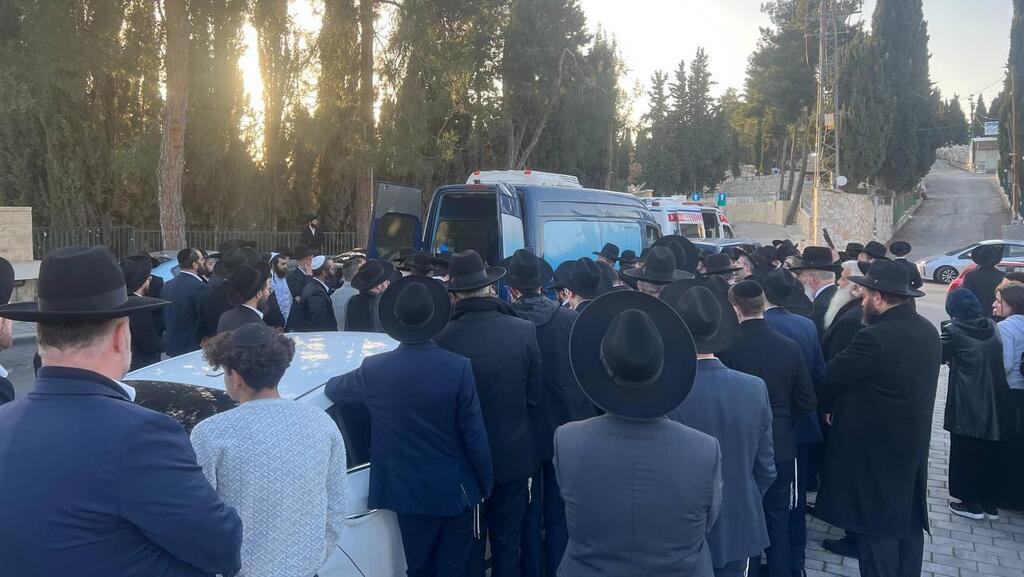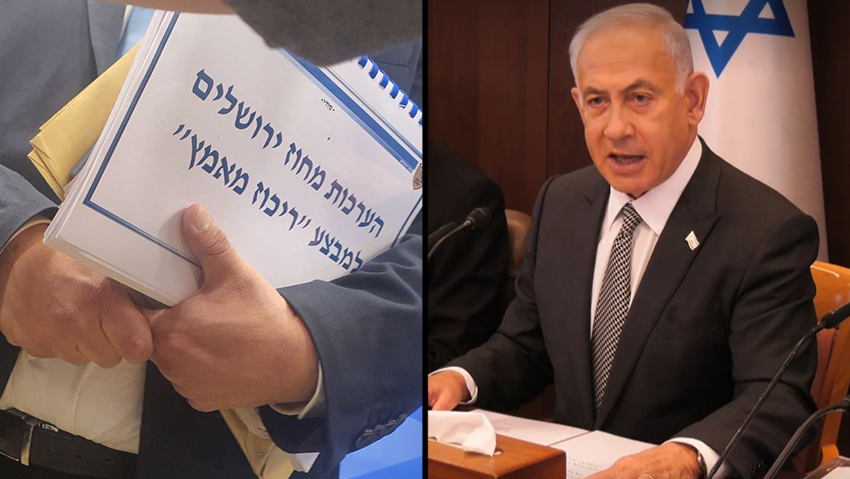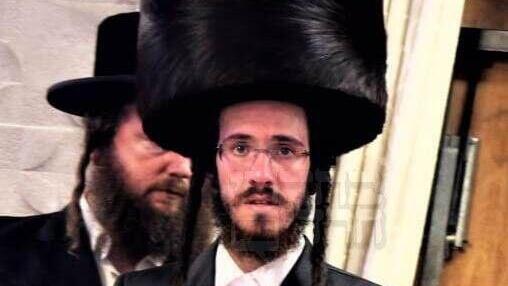Getting your Trinity Audio player ready...
Natalie Ziskin had delivered food to her sister on Friday a few weeks ago, like she did every week, pampering her on her weekend shift. A few hours later, Natalie spoke to Angelika over the phone. Little did the siblings know, that it would be the last time they would ever speak.
A Palestinian gunman shot Natalie, her husband, and five other people to death on a Friday evening in an east Jerusalem neighborhood.
“I still look at my phone, wondering why she hasn’t called me today,” said Angelika Mori, sobbing. “We were so attached; we would speak 20 times a day. My sister was everything to me.”
In recent weeks, violence between Israelis and Palestinians has escalated. Since the beginning of the year, 14 Israelis have been killed. Eighty Palestinians have been killed by Israeli forces. According to Israeli security forces, many of them are militants, but there have also been civilian deaths.
The deaths have left families on both sides shattered, trying to continue to function despite the pain.
It has been a month since the death of 6-year-old Yaakov (Yanki) Yisrael Paley and his 8-year-old brother Asher (Oshy) Menahem were murdered as they stood waiting for a bus in Jerusalem. A Palestinian assailant rammed into the station with a car, killing them in addition to Alter Shlomo Lederman. Yaakov and Asher’s father was critically wounded in the attack and was released just recently from the hospital.
According to Jewish mourning customs, for the first seven days after the burial, visitors come to the house of those in mourning and pay their respects. It is called shiva, “seven” in Hebrew. Dvori Paley, the mother of the children, sat in the house and caused many to marvel at her stoic demeanor. An ultra-Orthodox Jew, Paley was repeatedly asked if she was angry at the God she believes in. Her answer was always “No.”
Dvori, who is currently in hospital as the birth of her 10th child nears, marked her 40th birthday during the shiva. There was no celebration.
At the end of the shiva period, Dvori spoke to over 1,000 women in a convention hall in Jerusalem.
“After I found the strength to identify Yaakov’s body, I asked God: Please do not make this sacrifice in vain. No one asked me if they could be taken, but if this is a public sacrifice, then this sacrifice needs meaning and purpose,” she told the audience as she cried gently.
The event was also streamed live to over 80,000 viewers.
“What can we do so that we don’t experience this anymore?” a soft-spoken Dvori asked at the convention.
This week marks the sheloshim (“30” in Hebrew), the end of a monthlong mourning period. Riki Siton, a close friend of Dvori who has worked with her for 20 years, found herself preoccupied with how to commemorate the children.
“It dawned on me in the middle of the night,” said Siton. “We need 40 living rooms in women’s houses, 40 open houses that will host women from all walks of life to talk about one of the main things Dvori believed in – being thankful. Every woman, no matter where she comes from, can relate to that.”
The number 40 was chosen to mark Dvori’s birthday.
Dvori works at Ayelet HaShachar, a nonprofit organization that works to unite religious and nonreligious women in Israel.
In a time when Israelis are deeply divided over the future of the country, Dvori quickly became a symbol for many, crossing boundaries that very often exist in society.
4 View gallery


Funeral of 6-year-old Yaakov Yisrael Paley killed in Jerusalem ramming attack
(Photo: Liran Tamari)
Starting Sunday and throughout the week, over 100 women will be opening their homes in memory of Yaakov and Asher. The response was much greater than the 40 that organizers set out for, and there will also be open houses in countries outside of Israel. The aim is to help the participants be thankful and focus on the positive things in their lives.
“In the media, you only hear about what divides us. Our goal is to talk about what brings us together and to be thankful for what we have,” said Ayellet Ben Zaken, a literature teacher who is also licensed as a natural language processing counselor for women. “The point is to show people that we are all part of something bigger.”
“The pain is the same pain, and a mother is a mother, but for Dvori, at the very least, she wanted her sacrifice to mean something, to bring a unified voice,” Ben Zaken added.
Israelis are not only deeply divided on the judicial reforms the current government has begun to legislate but also on the response to the recent escalation in the conflict with the Palestinians. Those issues have been largely untouched by the women, although they are aware such contentious issues may come up.
“This was the first election I voted in for years,” said Ziskin, speaking about the latest general election held in Israel late last year. “I voted for Bibi [Prime Minister Benjamin Netanyahu] and I am so disappointed. He promised security, where is our security?”
Ziskin, who now must care for her ailing mother without the help of her sister, said neither of them will be voting in the next election.
4 View gallery


Benjamin Netanyahu; Ben-Gvir carrying plans for anti-terror op
(Photo: Gilad Cohen; Avi Mandelbaum)
“I am disappointed and angry; everyone has left us alone,” she added. Angelika arrived in Israel from Russia in 1990 with her family. When she didn’t let the media in to cover her during the shiva, she felt the decision led to the public forgetting her.
“I have never been so hurt by this country as I am now,” Angelika said.
Israel is now preoccupied with a heated public debate on the future of its judicial system. The peaks of violence are a continuing reminder that other challenges persist.
“Because of the discourse that is so polarizing, we need this connection now,” said Ben Zaken. “I am very upset by the harsh language that is being used, the feeling of distance. In the end, we are brothers and our enemies are happy to see us divided.”
Ahead of a week in which more mass protests are planned against the government, the homes of women across the country will echo a different type of dialogue.
“We might think differently, but it doesn’t make sense that there is such a distance between us. There are more things that we have in common than not,” said Ben Zaken. “We want people to lift their heads, get out of their comfort zones, look around, and see the important things.”
Yet, there is still sadness.
“I cannot even describe how much I miss my sister,” Angelika cried. “I miss her, I miss her, I miss her so. I don’t know how to get back to my normal life.”
Between the tears, Paley tries to see the good in the few years she had with the children she tragically lost. She leaves her audience with a message.
“Remember to care for your deposits [your children]; keep them safe,” she pleaded.
Just last week, after a lengthy day of demonstrations, a Palestinian gunman opened fire in Tel Aviv, wounding three Israelis. One of them is still fighting for his life in the hospital. Israeli military forces continue their daily raids into Palestinian territories in an attempt to stop attacks and the friction between the warring sides does not end. It is an endless cycle that has plagued the region for decades.



